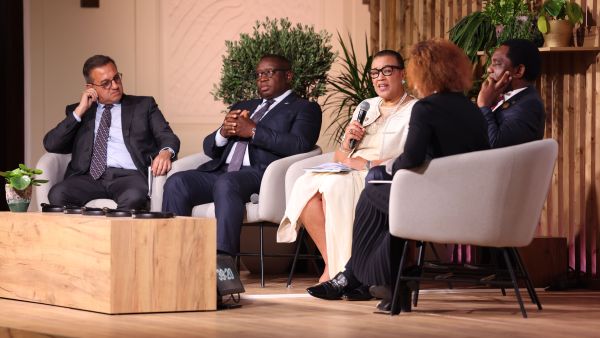Make space for indigenous knowledge in facing our food security challenges, earthna summit told

Countries need to balance advancements in technology with respect for “old knowledge” to tackle food security challenges that risk escalating global instability, international leaders and experts have said on the opening day of Qatar Foundation’s Earthna Summit 2023.
In a session on Global Challenges in Food Security: Indigenous Knowledge Systems and Their Applications, His Excellency Hakainde Hichilema, President of the Republic of Zambia, told delegates that the world cannot afford to “discount” traditional agricultural methods, and that the knowledge of the past should be woven into the framing of modern policies.
“Our people knew how to manage land, how to read the weather, whether it would be a flood year or a drought was coming, which crops would survive in semi-arid areas,” he said. “In our modern quest to produce more food and tackle the risks of climate change, we need to make space for this knowledge, and then we can adapt that history and heritage and apply our modern technology and volumes of production.
“Food security is national security, it is regional, continental, and global security, and without it we are courting instability the world does not need.”
His Excellency Dr. Julius Maada, President of the Republic of Sierra Leone, explained: “Indigenous methods of agriculture retain value, but we have forgotten or neglected this, or used new technologies which can destroy such methods.
“Technology can help us leapfrog to a situation where we produce huge sums of agricultural products without polluting our environment, but we also need to preserve indigenous methods.”
The session also heard from Baroness Patricia Scotland, Secretary-General of the Commonwealth, who highlighted one example of indigenous knowledge being revived to address today’s food security challenges – ancient wells in Sri Lanka that irrigate land in times of drought.
“In our modern arrogance, we had perhaps disregarded what indigenous people knew for many years,” she said. “This is a real moment for us to show respect for our old knowledge as well as respect for the new.
“Old knowledge can inform how we develop technologically, and allow us to take advantage of our history and future in a way that melds better for everyone.”
Meanwhile, panel member Jai Shroff, Global CEO of sustainable agricultural solutions provider UPL Ltd., emphasized the importance of “farmer resilience”, saying: “There is no food security without resilient farmers – there is no way they will be able to feed the world if they cannot feed their families.”
At the Earthna Summit, government representatives, QF’s Earthna Center for a Sustainable Future, and other partners confirmed a renewed commitment to strengthening food production, storage, and supply chains across the developing world. They announced plans to develop a dedicated food security program to improve food-system resilience between producing and importing countries in Africa, India, and Latin America.
Background Information
Qatar Foundation
Qatar Foundation (QF) is a non-profit organization made up of more than 50 entities working in education, research, and community development.
Our unique ecosystem—supported by partnerships with leading international institutions—is built on initiatives that address our most pressing challenges, create global opportunities, and empower people to shape our present and future.






